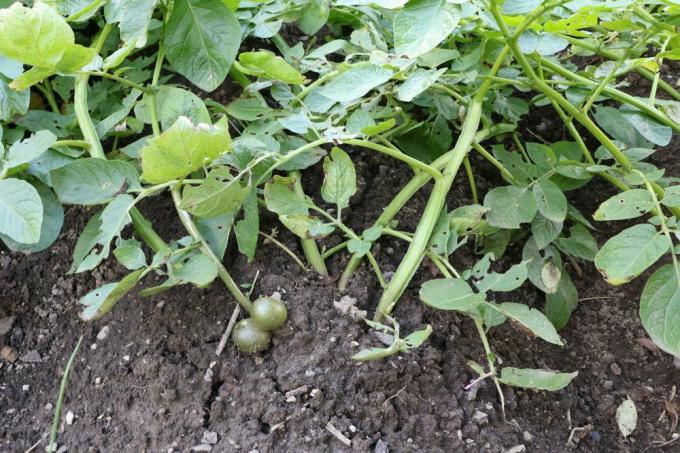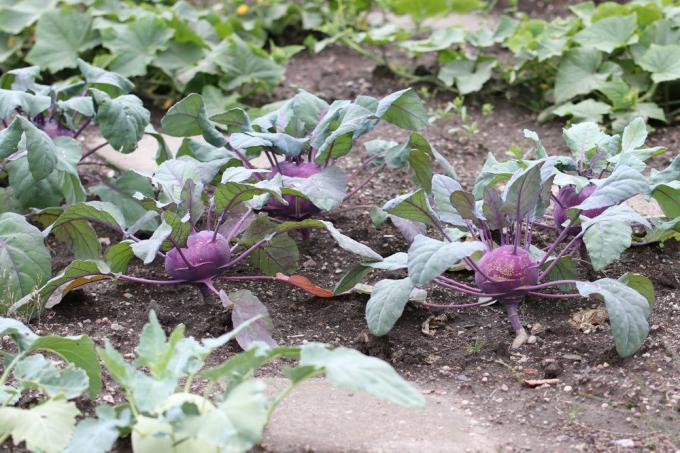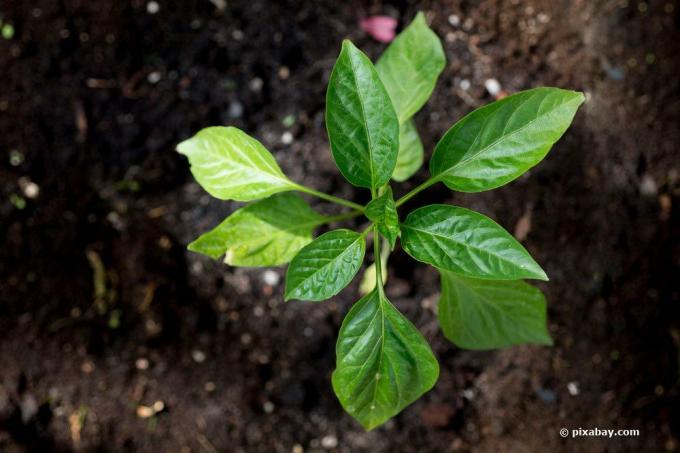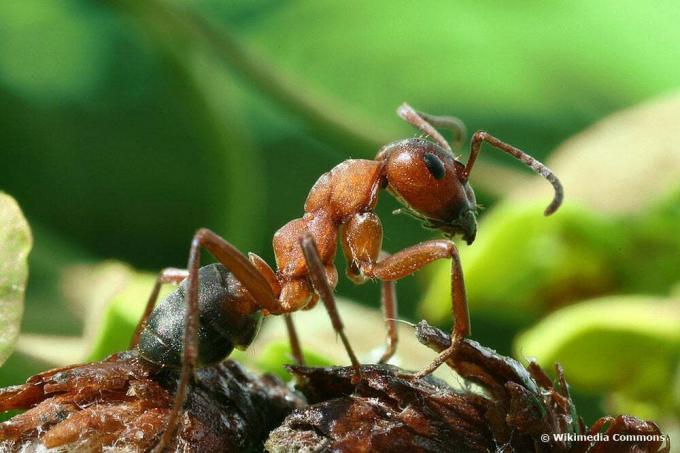
table of contents
- What table sugar is made of
- Ingredients of fertilizers
- What sugar is good for
- Suitable plants
- use
- drove
- Ants and other insects
- Diseases
- frequently asked Questions
There is sugar in almost every household. It is not only used for sweetening, it also gives energy. It therefore makes sense to think about whether it is also suitable as a fertilizer for plants.
In a nutshell
- Sugar is an indirect nutrient
- uncommon for plant fertilization
- is more suitable for feeding soil organisms
- few heavily consuming plants benefit from it
- Sugar can block channels
What table sugar is made of
Sugar in water is known as a home remedy to keep bouquets fresher longer in the vase. So it seems to give plants an advantage. In fact, various crops can benefit from tiny amounts of sugar. However, the sweetener consists of different substances than, for example, a conventional fertilizer. Table sugar contains almost only simple carbohydrates.

Ingredients of fertilizers
Plants basically need nitrogen, phosphate, potassium and many other minerals and additives in very small quantities for growth. None of these nutrients are found in conventional table sugar, but in every commercially available fertilizer. Other household remedies such as coffee grounds or kitchen waste also contain substances necessary for plants.
What sugar is good for
While plants are not or hardly able to utilize the household sugar, the soil organisms in the substrate around the plant benefit from small amounts of sugar. You can convert the carbohydrates in such a way that they turn them into substances necessary for vegetables or flowers, in particular nitrogen. So the soil life is activated.
Suitable plants
No special plants are suitable for fertilization with sweeteners. This fertilizer is most suitable in garden beds with strongly eating vegetable plants.
- Potatoes: Since you prepare the bed for potatoes in autumn, often with manure or compost, adding sugar cannot do any harm. It helps the soil organisms break down certain minerals and nutrients. By spring, when you put the potatoes, the added sugar has already been eliminated.

- Cabbage plants: Most Cabbage varieties are preferred in early spring and are then placed on the bed in early summer. Some types of cabbage, such as Brussels sprouts, stand in the vegetable patch for a long time and therefore need additional fertilizers from time to time.

- Fruit vegetables: Grow tomatoes, cucumbers, peppers, etc. outdoors, you can prepare the designated beds in autumn or early spring. For this, manure or compost is worked into the substrate. As with potatoes, adding sugar to fruit vegetables cannot do any harm to activate the soil life.

- Corn: In the case of sweet corn in particular, the addition of the sweetener seems to be an obvious choice. Maybe it can influence the taste? However, corn does not absorb sugar in its normal form either. The soil organisms have to process this first.

- Strawberries: Strawberries are freshly planted in late summer or autumn. At this point in time, the bed is also rebuilt and supplied with compost. Using household sugar makes little sense because it is not yet available to the plants in a usable form when they are planted. Sugar water can be used to fertilize old strawberry beds.

- Fruit trees and bushes: In the case of fruit, too, it seems natural to think that adding sugar could affect the sweetness of the fruit. But like with corn, it doesn't work that way. With trees and bushes, the danger of attracting ants with table sugar is particularly great. These then migrate into the branches and twigs and could start tending to the lice there.
Note: You can water the crown area from time to time with very diluted sugar water.
use
Table sugar should never be simply poured into the planting hole or mixed into the substrate in large quantities. It is easiest and safest to use when you mix small amounts of sugar into the watering water. This, too, should only be done now and then and not with every watering.
drove
Due to its high processing capacity, table sugar contains hardly any other nutrients than carbohydrates, which is why it should only be used in moderation in human nutrition. The same goes for plants. You can't do anything with just sugar. Instead, osmosis can lead to dehydration or clog the ducts of the plants.
Note: This mainly applies to the typical white household sugar. Sugar beet or sugar beet juice have other ingredients that are useful for plants.
Ants and other insects
If you use table sugar in the garden, you must always keep in mind that it could attract unwelcome gardeners. Above all ants and, especially if the sweetener has come into contact with moisture, wasps.

Diseases
Mushrooms like to use sweets as a breeding ground. This is known, for example, from the honeydew that aphids produce. Dangerous plant fungi can then settle on this. For this reason, it is important never to water plants with a strong sugar solution from above. The leaves shouldn't come into contact with it so that they don't stick together. This could also clog the stomata that the plant needs to breathe.
frequently asked Questions
Even more caution is required with other types of sugar or sweeteners. Syrup-like foods, in particular, can seriously damage the soil and roots. Man-made sugar substitutes do not provide any nutrients to plants.
As with sugar, it depends mostly on the dosage. Salt draws water out of the environment, which can dry out and burn plants. That is why salt was previously used as a herbicide.
Basically, it is better to compost any food or kitchen waste that is suitable for it before using it as fertilizer. This can be fruit, for example. All processed or cooked foods, on the other hand, belong in the household or organic waste if they can no longer be eaten.
It sounds easy if you pour the plants with the rest of the cola or soda bottle and they grow better as a result. However, the opposite can happen because the sticky liquid is harmful to the plant.



